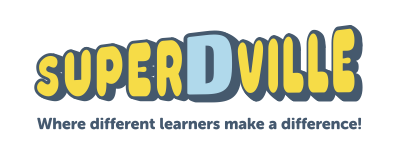
What is The Science of Reading?
If you’re a parent or educator, you’ll know that we are in the midst of a seismic shift in the way young students are being taught to read. More and more states and school districts are opting for a Structured Literacy approach, using methods based on what’s known as the Science of Reading.
The Science of Reading uses methods that are evidence-based, with information gleaned from fifty years of research into the science of how children learn to read.
You can read more about the Science of Reading and what this shift in approach means to educators in this piece from Reading Rockets.
What does Social Emotional Learning have to do with the Science of Reading?
One of our favorite quotes will help explain!
The only thing that you absolutely have to know,
is the location of the library.
—Albert Einstein
Albert Einstein was a brilliant physicist who also had dyslexia. His love of libraries reminds us that a love of stories and reading is possible for all kids, no matter how they learn.
And speaking of how kids learn to read, we think that as a scientist, Albert Einstein would approve of the changes being made to literacy instruction. These changes as a whole are shifting educators’ approach to something called The Science of Reading.
How Does Social Emotional Learning Tie In?
As the rollout of Science of Reading-based curriculum continues, educators and researchers are encouraging teachers to supplement their instruction by helping their students develop the skills we know as Social Emotional Learning.
From building confidence and empathy to developing problem-solving skills, new readers with a robust SEL toolbox can find ways to overcome the challenges of learning to read and find the joy of reading on the other side.
SuperDville: SEL for Students with Learning Differences
While Confidence, Problem-Solving, and Resilience are useful SEL skills for all learners, they are vitally important to students with learning differences like dyslexia, dyscalculia, and ADHD.
Research shows that children with learning differences are more vulnerable to mental health issues like anxiety and depression than their peers without LDs.
We can’t innoculate children with learning differences from developing mental health issues. What we, as educators and parents, can do is foster feelings of Self-Acceptance, Confidence, and Belonging.
These feelings can translate to skills that help bolster a child as they face the social and emotional challenges that can come with having a learning difference. Helping young students build these SEL skills is at the heart of what we do here at SuperDville.
SuperDville and The Science of Reading: A Perfect Evidence-Based Match
Everything we create at SuperDville, from our episodes to our accompanying curriculum, is based on evidence gleaned from our own expert teams of researchers.
In this way, SuperDville’s development mirrors how The Science of Reading’s best practices were developed: with scientific evidence at the core. This evidence has helped us create a best-in-class SEL curriculum for kids with Learning Differences that works hand-in-hand with other evidence-based programs like The Science of Reading.
What Does SEL and Literacy Success Look Like?
While learning to read is the ultimate goal in literacy education, adding SEL into the mix means a wonderful opportunity to add a new goal: to make the process of learning to read (or really, the process of learning anything!) an experience that builds up our kids’ confidence instead of tearing it down.
At SuperDville, we want to help young students discover, celebrate, and share their strengths.
Fostering a classroom community of belonging, encouragement, and support helps students build a strong foundation that will give them to confidence embrace the wonderfully unique ways that each of them learn.
Want to use SuperDville to Supercharge your students’ learning? Subscribe now!
“The single most important implication of research in dyslexia is making sure that we do not miss the unique potential of each child. SuperD!ville provides an environment where children can celebrate their unique contributions within the context of a supportive community.”
– Maryanne Wolf, Director, Center for Dyslexia, Diverse Learners, and Social Justice, UCLA; Author, Proust and the Squid
